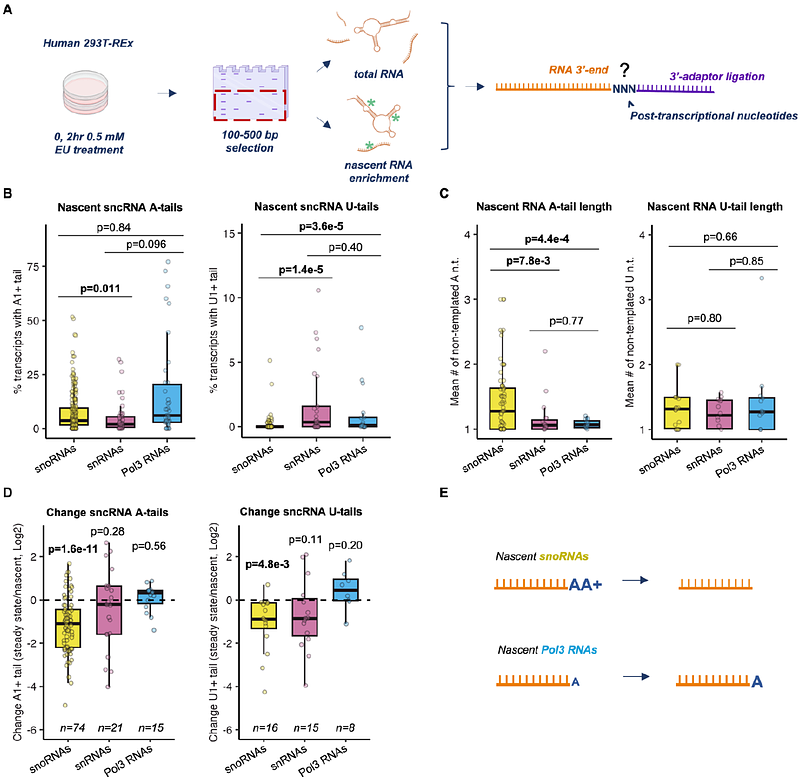Post-transcriptional monoadenylation by TENT2 terminates human RNA polymerase III transcript 3' end processing and promotes 7SL RNA biogenesis

Post-transcriptional monoadenylation by TENT2 terminates human RNA polymerase III transcript 3' end processing and promotes 7SL RNA biogenesis
Ocheltree, C.; Skrable, B.; Pimentel, A.; Nicholson-Shaw, T.; Lee, S. R.; Lykke-Anderson, J.
AbstractSmall non-coding RNAs (sncRNAs) are subject to a variety of 3\'\' end trimming and tailing activities during biogenesis, which dictate whether they undergo maturation or are instead subjected to degradation. To investigate the dynamics of human sncRNA 3\'\' end processing at a global level we performed genome-wide 3\'\' end sequencing of nascently-transcribed and steady state sncRNAs. This revealed widespread post-transcriptional adenylation of nascent sncRNAs, which came in two distinct varieties. One is characterized by oligoadenylation, which is transient, promoted by TENT4A/4B polymerases, and observed primarily on unstable snoRNAs and scaRNAs that are not fully processed at their 3\'\' ends. The other is characterized by monoadenylation, which is broadly catalyzed by TENT2 and stably accumulates at the 3\'\'-end of many RNA Polymerase-III-transcribed (Pol-III) RNAs as well as a subset of small nuclear RNAs. This monoadenylation event terminates 3\'\' end uridylation/deuridylation dynamics characteristic of nascent Pol-III RNAs and, in the case of 7SL RNAs, prevents their accumulation with nuclear La protein and promotes their biogenesis towards assembly into cytoplasmic signal recognition particles.